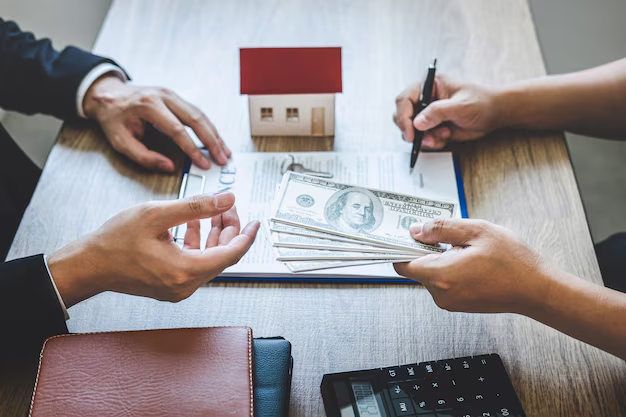Unmasking the True Costs of Owning a Home: What Every Buyer Needs to Know
Owning a home is often seen as a cornerstone of the American Dream—a symbol of financial stability and personal success. Yet, beneath the surface of homeownership lies a realm of hidden costs that can catch even the most prepared homeowners off-guard. Before signing on the dotted line, it's important to understand what these costs are and how they can impact your financial situation.
Property Taxes: A Recurring Obligation
One of the most underestimated costs of homeownership is property taxes. These taxes are typically calculated based on the value of your home and the rate set by local governments. While they are unavoidable, their fluctuations can be unpredictable, rising as your property value increases. Over time, property taxes can make a significant dent in your budget, so it's crucial to factor them into your long-term financial planning.
Maintenance and Repairs: The Price of Keeping Your Home in Shape
When you own a home, maintenance is no longer an optional expense. From routine projects like painting and landscaping to unexpected emergencies like a leaky roof or broken furnace, these costs add up. Regular maintenance not only preserves your home's value but also prevents minor issues from becoming costly repairs. Planning for these expenses can save you financial stress down the line.
Homeowner's Insurance: Protection with a Price Tag
Homeowner's insurance is essential for safeguarding your investment against disasters and accidents. The costs can vary significantly based on location, coverage limits, and deductibles. It's vital to shop around to find the best policy, but keep in mind, this is a recurring cost that will be part of your budget for as long as you own your home.
Utility Bills: More than Mere Monthly Expenses
While you might budget for utilities based on your previous experience, homes—especially larger ones—can be surprisingly expensive to heat, cool, and power. Consider the energy efficiency of the house and the costs of water, gas, electricity, and waste removal. Implementing energy-saving measures might help cushion some of these expenses.
HOA Fees: The Cost of Community
If your home is part of a community with a Homeowners Association (HOA), you'll likely face mandatory monthly or annual fees. These fees fund community amenities and services like landscaping, security, and recreation centers, but they can be significant and may increase over time.
The Safety Net: Financial Assistance Programs and Options
As these hidden costs become apparent, exploring financial assistance programs can be a smart move. Various government aid programs are designed to help homeowners manage the financial load. These might include grants for energy-efficient home upgrades, tax credits, and even debt relief options for those facing unexpected financial strain.
If you're concerned about juggling these commitments effectively, understanding credit card solutions and consolidating debt under lower interest rates might provide financial breathing room. Moreover, investing in educational grants to enhance your financial literacy could empower you to navigate homeownership with greater confidence.
Financial Support and Solutions at a Glance
- 🏡 Government Aid Programs: Explore options like FHA loans, HUD programs, and state-specific grants.
- 👨🔧 Home Repair Grants: Investigate federal and state programs for home improvement assistance.
- 💡 Energy Efficiency Incentives: Look into tax credits and rebates for solar panel installations and energy-saving appliances.
- 💳 Credit Card Solutions: Consider balance transfers or debt consolidation for better interest rates.
- 📚 Educational Grants: Enroll in courses focused on personal finance and real estate management.
Homeownership is a journey filled with both predictable and surprising expenses. By anticipating hidden costs and equipping yourself with knowledge about available financial resources, you can make a more informed decision and enjoy a stable homeownership experience.

